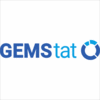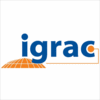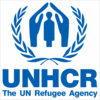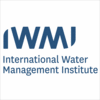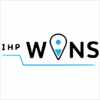Water GIS - Linking GIS platforms focused on water

There are numerous GIS web platforms that focus on water-related themes, such as water resources management, water availability or water quality. The WaterGIS button provides a common hub linking these platforms, thereby making it easier for users to find the content they are looking for.
GAP-Groundwater Assessment Platform (Eawag)
The Groundwater Assessment Platform is a free, interactive online GIS platform for the viewing and mapping of groundwater quality data around the globe, including data sharing and statistical modelling.
GEMStat (UNEP)
The Global Freshwater Quality Database GEMStat provides scientifically-sound data and information on the state and trend of global inland water quality. As operational part of the GEMS/Water Programme of the United Nations Environment Programme (UNEP), GEMStat is hosted by the GEMS/Water Data Centre (GWDC) within the International Centre for Water Resources and Global Change (ICWRGC) in Koblenz, Germany.
GGIS-Global Groundwater Information System (IGRAC)
The Global Groundwater Information System (GGIS) is an interactive, web-based portal to groundwater-related information and knowledge. The GGIS consists of several modules structured around various themes. Each module has its own map-based viewer with underlying database to allow storing and visualizing geospatial data in a systematic way.
WASH GIS Portal (UNHCR)
GIS Portal is a database of the boreholes located within refugee camps and settlements. The database contains information on the infrastructure, hydrogeology, lithology, and water quality parameters. This information is linked to the Knowledge Attitudes and Practices (KAP) mapper which analyses data from the household survey. It also has the potential to be used for asset management, and groundwater and water quality monitoring purpose.
Water Data Portal (IWMI)
Water Data Portal (IWMI)The Water Data Portal (WDP), following "one-stop shop" approach, provides access to a large amount of data related to water and agriculture. WDP contains meteorological, hydrological, socio-economic, spatial data layer, satellite images as well as hydrological model setups. The data in the WDP, both spatial & non-spatial, are supported by the standardized metadata and are available for download by user including academia, scientists, researchers and decision-makers. However, access is provided in compliance with copyrights, intellectual property rights and data agreements with our partners.
Water Risk Filter (WWF)
The Water Risk Filter is a practical, online tool that helps companies and investors assess and respond to water-related risks facing their operations and investments across the globe. Developed by WWF and the German finance institution DEG, the Water Risk Filter has become a leading and trusted source of water risk data for thousands of users - from multinational corporations and SMEs to financial institutions - which have used it to evaluate hundreds of thousands of specific sites. After a major upgrade in 2018 and a wealth of new functions, the Water Risk Filter 5.0 will enable companies and investors to Explore, Assess, Value and Respond to water risks.
WINS-Water Information Network System (UNESCO-IHP)
he Water Information Network System (WINS) is an open access and free participatory platform for sharing, accessing and visualizing water-related information, as well as for connecting water stakeholders. Developed and maintained by the Intergovernmental Hydrological Programme (IHP) of UNESCO, WINS is a tool aimed at supporting decision-making, deriving policy recommendations, and building capacity for sound, efficient, and scientific-based water resources management.As a user-friendly and interactive tool, WINS allows to access to various types of information (maps, reports, graph, etc.) covering the entire water cycle, ranging from groundwater to urban water through gender issues, from local to global scale.
Contact
Send an e-mail to GAPadmin@eawag.ch to learn more or to add your platform to Water GIS.

